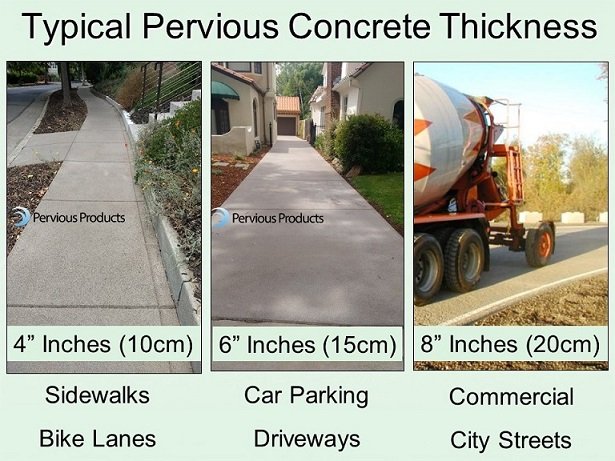A 5th wheel typically weighs between 12,000 to 15,000 pounds, but the exact weight can vary based on the manufacturer, model, and amenities. Understanding how much does a 5th wheel weigh is crucial for safely towing and setting it up at campsites. Whether you are a seasoned RVer or a newbie looking to dive into the world of 5th wheel trailers, knowing the weight specifications is essential. Join us as we delve deeper into the factors that influence the weight of a 5th wheel and tips for managing it effectively on your adventures.
How Much Does a 5th Wheel Weigh: A Comprehensive Guide
Welcome, curious readers, to our ultimate guide on the weight of 5th wheels! If you’ve ever wondered about the weight of these impressive RVs and how it impacts your travel adventures, you’ve come to the right place. Buckle up as we dive into the nitty-gritty details of how much a 5th wheel weighs and why it’s crucial to know this information before hitting the road.
Understanding the Basics of 5th Wheel Weight
Let’s kick things off by getting to the core of the matter – what exactly is the weight of a 5th wheel? In the world of RVs, weight plays a significant role in determining how these homes on wheels perform on the road. When we talk about the weight of a 5th wheel, we typically refer to two main categories: dry weight and gross vehicle weight rating (GVWR).
Dry Weight
The dry weight of a 5th wheel refers to the weight of the RV without any additional cargo, fluids, or passengers on board. This weight provides a baseline to understand how much the empty 5th wheel weighs before loading it up with your essentials for the journey.
Gross Vehicle Weight Rating (GVWR)
On the other hand, the GVWR represents the maximum weight limit that a 5th wheel can safely carry, including passengers, cargo, water, and other supplies. Exceeding the GVWR can lead to safety hazards and potential damage to the RV and its components.
Factors Influencing a 5th Wheel’s Weight
Now that we have a grasp of the weight terminology, let’s explore the various factors that can influence how much a 5th wheel weighs:
Size and Layout
The size and layout of a 5th wheel play a significant role in determining its weight. Larger RVs with more slide-outs and amenities will generally weigh more compared to smaller, more compact models.
Construction Materials
The materials used in the construction of a 5th wheel, such as aluminum, fiberglass, or steel, can impact its overall weight. Lighter materials may reduce the RV’s weight but could also affect its durability and insulation.
Additional Features
Features like multiple bathrooms, entertainment systems, and luxury furnishings can add to the weight of a 5th wheel. While these amenities enhance the comfort of your RV life, they also contribute to the overall weight of the vehicle.
Why Knowing the Weight of Your 5th Wheel Matters
Understanding how much your 5th wheel weighs is crucial for several reasons:
Safety
Operating an overweight RV can pose safety risks on the road, affecting braking distance, stability, and control. By staying within the recommended weight limits, you prioritize the safety of yourself and others on the road.
Fuel Efficiency
The weight of your 5th wheel directly impacts its fuel efficiency. Heavier RVs require more fuel to tow, leading to increased costs and environmental impact. Keeping your RV’s weight in check can help you save on fuel expenses during your travels.
Legal Compliance
Many states have regulations regarding the maximum weight allowed for RVs on public roads. Exceeding these weight limits can result in fines and citations. Knowing the weight of your 5th wheel ensures you comply with these legal requirements.
How to Determine the Weight of Your 5th Wheel
Now, the big question – how can you accurately determine the weight of your 5th wheel? Here are some steps to help you:
Consult the Manufacturer’s Specifications
Start by checking the manufacturer’s specifications for your 5th wheel model. These details typically include the dry weight, GVWR, and other important weight-related information specific to your RV.
Weigh Your 5th Wheel
Visit a certified weigh station with your fully loaded 5th wheel to get an accurate measurement of its weight. This step ensures you have a real-time understanding of how much your RV weighs when fully equipped for the road.
Use Weight Distribution Tools
Invest in weight distribution tools like tongue weight scales to help you distribute weight evenly across your 5th wheel. Proper weight distribution not only improves towing stability but also ensures a safer and smoother travel experience.
And there you have it, folks – a deep dive into the world of 5th wheel weights and why they matter. By understanding how much your RV weighs and its implications on safety, fuel efficiency, and legal compliance, you can embark on your travel adventures with confidence and peace of mind. Remember, a well-balanced and properly loaded 5th wheel is the key to a smooth and enjoyable journey on the open road. Happy trails!
Thank you for joining us on this weighty exploration of 5th wheels. Stay tuned for more informative content on RV living and travel tips!
How Much Can You ACTUALLY Tow? • What Size Truck Do I Need??
Frequently Asked Questions
How can I determine the weight of a 5th wheel trailer?
To find out the weight of a 5th wheel trailer, you need to refer to the manufacturer’s specifications. The weight can vary depending on the size, model, and features of the trailer. Typically, the weight information can be found on a sticker located on the trailer or in the owner’s manual.
Why is it important to know the weight of a 5th wheel before towing it?
Knowing the weight of a 5th wheel trailer is crucial for safe towing. Exceeding the weight capacity of your vehicle or hitch can lead to instability, reduced control, and increased risk of accidents. Understanding the weight of the trailer helps you make informed decisions on towing equipment and loading to ensure safe travels.
Can the weight of a 5th wheel trailer impact fuel efficiency?
Yes, the weight of a 5th wheel trailer can significantly affect fuel efficiency. Towing a heavier trailer requires more power, which in turn increases fuel consumption. It’s important to consider the weight of the trailer when planning a trip to estimate the impact on fuel costs and make necessary adjustments to improve efficiency.
Final Thoughts
In conclusion, the weight of a 5th wheel varies based on its size and features. Typically, a 5th wheel trailer weighs between 10,000 to 20,000 pounds. Understanding how much does a 5th wheel weigh is crucial for safe towing and vehicle compatibility. Always check the manufacturer’s specifications for accurate weight information.




